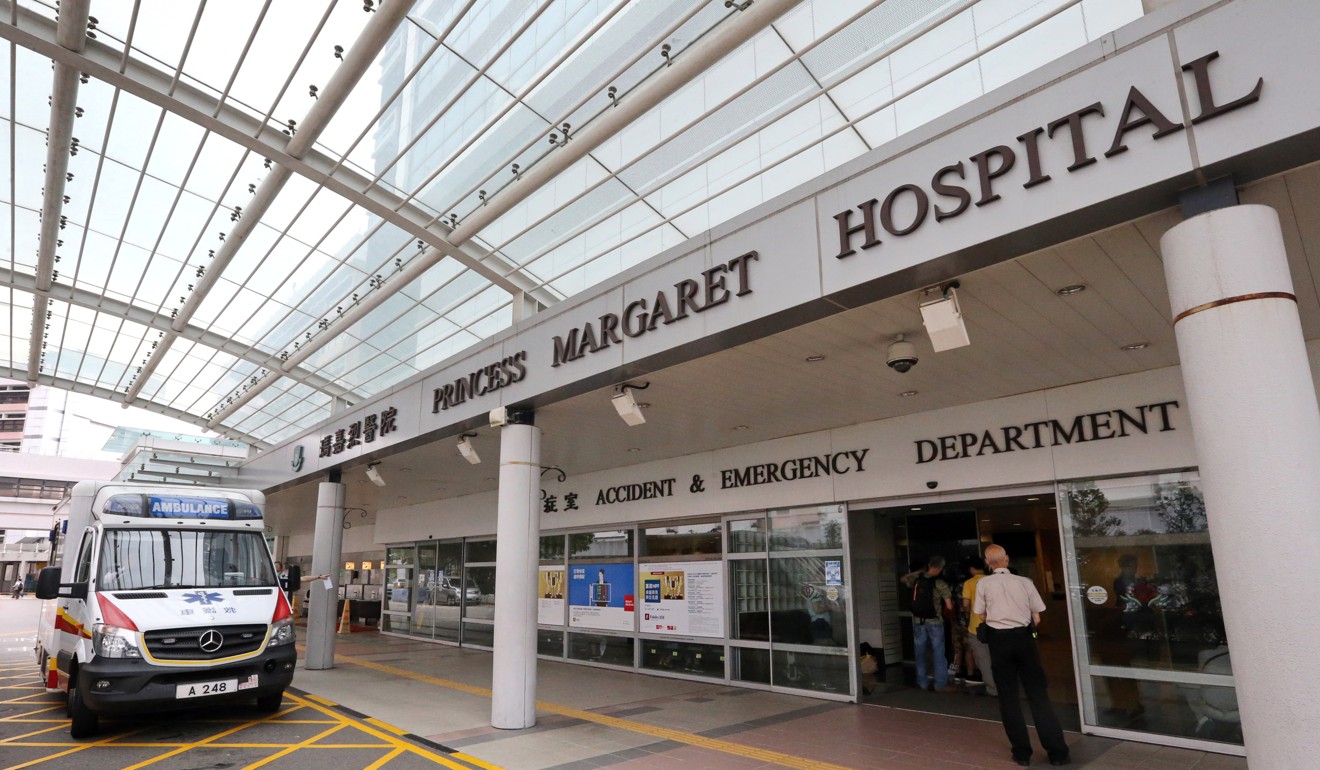
How a flu-hit mother suffered as her baby lay ill in a Hong Kong hospital
Despite their workload, medical staff should not use ‘ridiculous procedures’ and ‘inhumane treatment’, May Chan Rhodes says after 17-hour ordeal
It was 2.30am on Monday in the paediatric ward of Hong Kong’s Princess Margaret Hospital and May Chan Rhodes kept saying to herself: “Don’t faint. Don’t get a fever. Or no one will take care of baby Sophia.”
Rhodes, 38, who herself was recovering from a four-day bout of flu, had no one else to turn to during a 17½-hour ordeal involving two public hospitals and her fever-hit 10-week-old daughter Sophia.
Sophia was first rushed to North Lantau Hospital from home at 1.30am with a body temperature above 39 degrees Celsius (102 Fahrenheit), as the flu virus raged through the family of five.

Despite the winter flu season being in full swing and the “desperate” situation for hospitals, it was no excuse for medical professionals to deal with the sick parent and child using “ridiculous procedures” and “inhumane treatment”, Rhodes said.
With health authorities observing that local influenza activity had increased “markedly to a high level”, public hospitals were stretched to capacity and bed occupancy rates were up to 123 per cent, resulting in patients having to wait hours for a bed.
Flu season a reminder of Hong Kong’s pressing need for more foreign-trained doctors in public hospitals
The Rhodes and their three children – the oldest is four – came down with flu one by one over five days from January 17.
At North Lantau Hospital – where the implementation of overnight inpatient services have been overdue for more than four years – the nurses sniggered at Rhodes when she refused to cover herself or Sophia while breastfeeding to keep the feverish baby hydrated and aired, the mother said.
Sophia was then transferred to Princess Margaret Hospital where a paediatric ward designed for six beds had nine in it and all the medical staff seemed too busy to provide any extra help, Rhodes recalled.
Hospital Authority data showed that at midnight on January 22, the medical inpatient bed occupancy rate at Princess Margaret Hospital was 114 per cent – the highest since the beginning of this year.
Eight-hour waits in emergency rooms as Hong Kong hospitals feel flu season surge over Christmas holidays
“I can understand that all the medics were under pressure due to manpower shortages but some of the handling was really beneath humane standards,” Rhodes said.
Rhodes asked the ward nurses what would happen if she fainted as she was also sick, and hadn’t had any rest since Saturday night.
“They told me that no one would help me look after my daughter. If I fainted, they would send me to the accident and emergency unit and Sophia would have to leave with me,” Rhodes said.
The nurse stopped the tea lady, saying: ‘Please put down that cup and leave it to the mother. She can pour the water by herself’
Rhodes then asked if she could have some Panadol, and was told that the pills would not be available in the ward or the hospital’s convenience store.
“They said, if you really want the medicine, you’ll have to queue for it in the accident and emergency unit,” Rhodes said.
The paediatric ward Sophia was admitted to was in the hospital’s east wing while accident and emergency services were in the west wing.
Tired and fragile, Rhodes asked for a cup of water but the little help a tea lady offered was interrupted. “The nurse stopped the tea lady, saying: ‘Please put down that cup and leave it to the mother [Rhodes]. She can pour the water by herself,’” Rhodes said.
Struggling to stay awake, praying for no more fever and not daring to go looking for flu tablets, Rhodes tried all night to contact her neighbours, hoping for someone to keep an eye on the rest of her sick family at home and to bring her some medicine and food in the morning.
Inside Hong Kong’s public hospital crisis: temporary beds, angry patients, nurses and doctors stretched to breaking point
It was not until around 7pm on Monday that Rhodes made it to her bed after a sleepless 48 hours, when Sophia was allowed to return home before her pre-discharge consultation on Tuesday morning.
“What the nurses did might not have contravened their protocol. But since when is there a protocol on human kindness?” Rhodes said.
“I am highly resourceful and educated and know how to challenge people. How would they treat a mother if she were a new migrant from the mainland, or from an ethnic minority, or who could barely speak Chinese?”
A spokeswoman for Princess Margaret Hospital said in such cases, ward staff would take care of the admitted infant for accompanying parents or persons during an emergency. And if the accompanying adults were in need of medical treatment, it was “usual practice” for staff to refer them to the accident and emergency department.
The spokeswoman also said hospital staff were “encouraged to provide assistance to parents and carers”, and that effective communication was also “constantly reinforced”.

